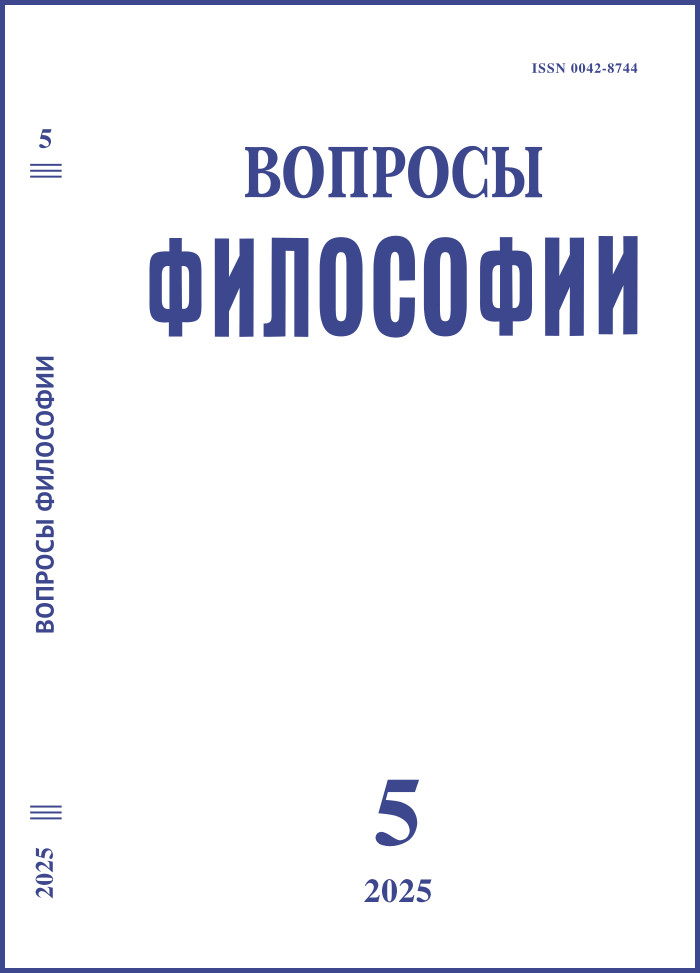Processualism in the Different Intellectual Traditions (Western and Indian)
DOI:
https://doi.org/10.21146/0042-8744-2025-5-107-117Keywords:
processualism, substantialism, Indian philosophy, Mimamsa, Buddhism, Dharma, hermeneutics, Veda, process-oriented ontology, object-oriented ontology, Rein RaudAbstract
Today, in the field of philosophical research, one can increasingly encounter a confrontation between two philosophical paradigms: processualism and substantialism, where the former is gaining popularity, which is happening in parallel with the development of natural sciences, which put forward corresponding arguments in favor of the processual nature of reality. The growing interest in processual ideas since the 19th–20th centuries is especially characteristic of the Western intellectual tradition. However, not only this culture, but also
others, contain similar ideas. Such a striking example is the Indian intellectual tradition (in particular, the Buddhist school and the orthodox Mimamsa school). In India, processual ideas were developed much earlier, the origins of which can be traced back to the 6th-5th centuries BC. But to this day, these ideas are developing and remain relevant. At first glance, there may be an external similarity between the philosophical processualism of Western and Indian cultures, but an examination of the foundations and underlying causes of the ideas of processuality in both traditions will reveal specific features of each, and therefore their irreducibility to each other. This paper attempts to analyze these distinctive characteristics of the processualism of both intellectual traditions, each of which has its own language of philosophizing, its own original philosophical concepts, etc. As an example of the philosophical processualism of modern Western culture was considered the idea of the process-oriented ontology of Rein Raud (Being in Flux: A Post-Anthropocentric Ontology of the Self, 2021). And to illustrate the processualism of the Indian tradition – the philosophical systems of the Mimamsa school and Buddhism.

